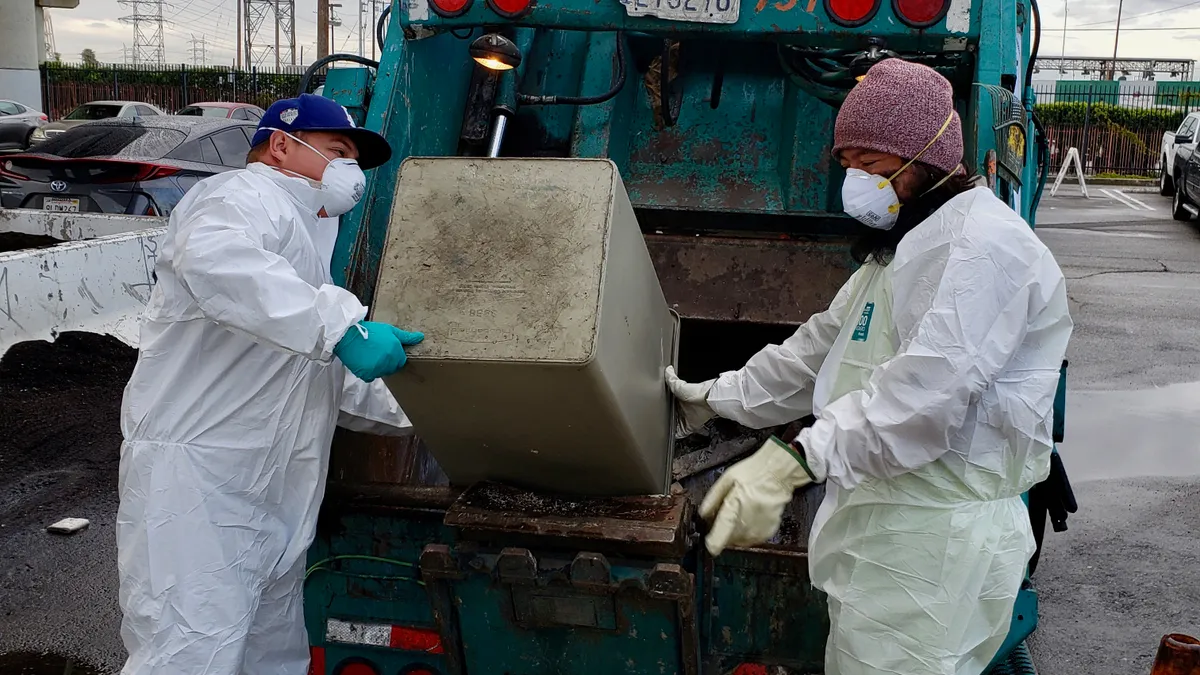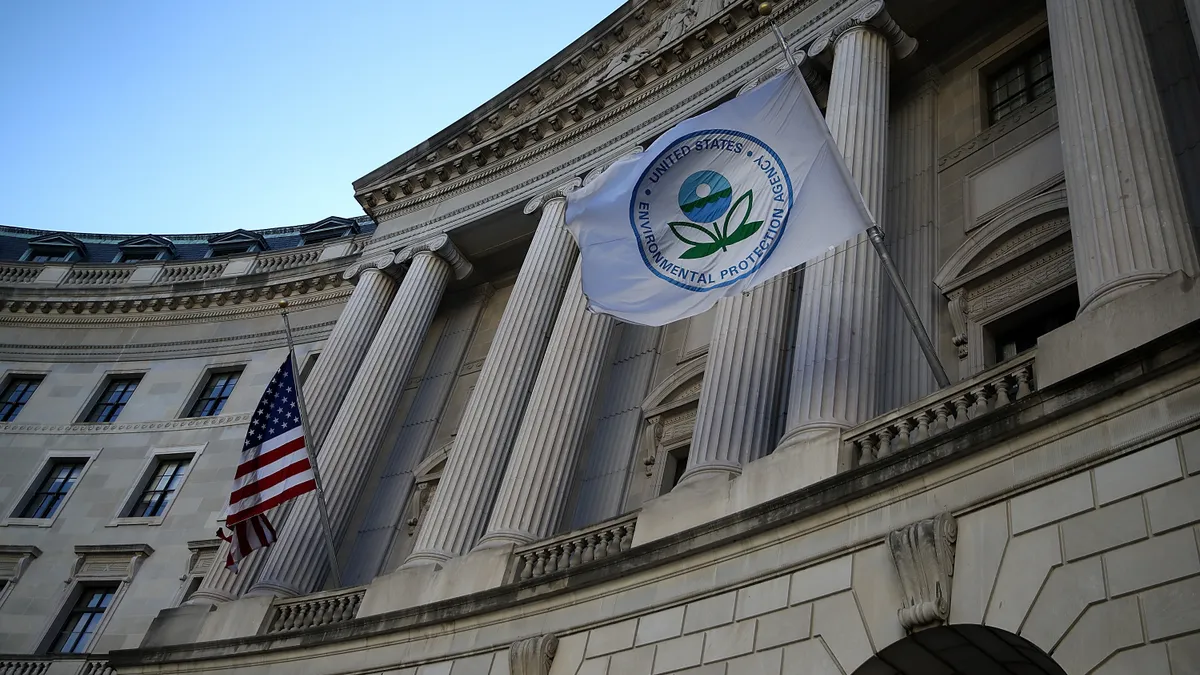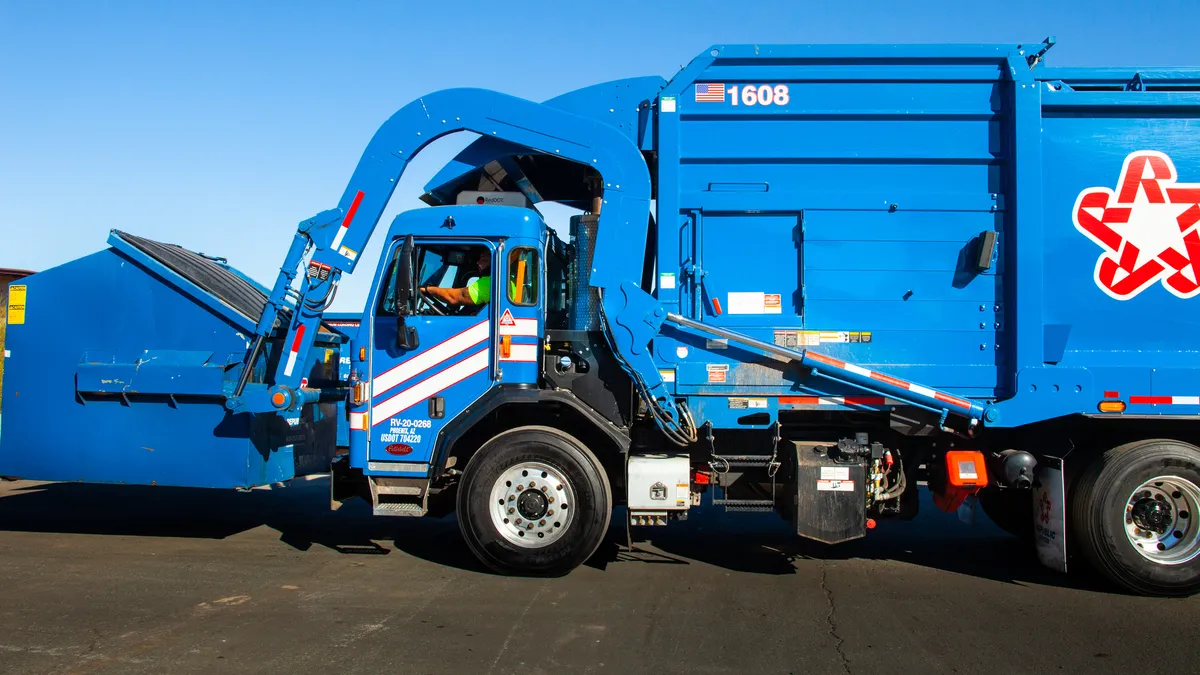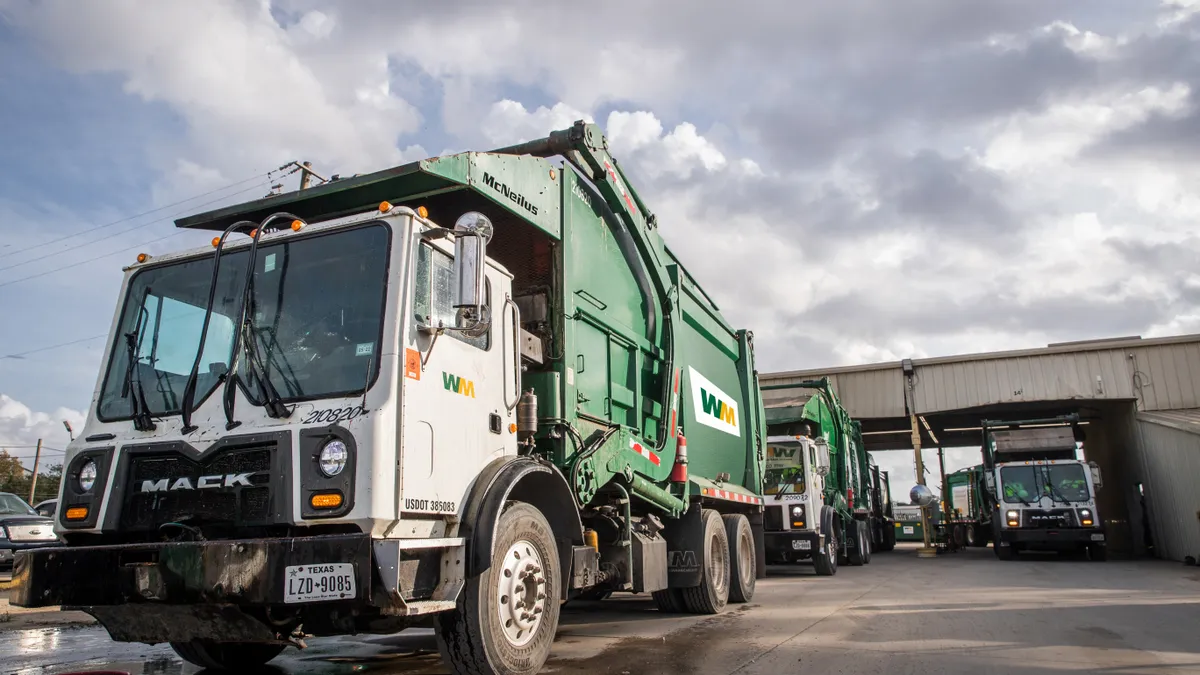Reminders of how the pandemic has shaped waste and recycling operations touched every part of WASTECON 2021, with talks featuring ideas on leading through a crisis and envisioning city recovery strategies.
Edward Grayson, commissioner of New York's Department of Sanitation (DSNY), put a sobering face on what the coronavirus experience has been like at the nation's largest public sector operation in an early U.S. hotspot.
At the peak of the pandemic, 20% of the workforce was out. To date, 1,400 workers have tested positive (about 15% of the overall workforce) and eight people in DSNY's ranks are known to have died from COVID-19. So far, DSNY's police force are the only ones who have been able to access the vaccine, due to their law enforcement status, Grayson said during a panel discussion at the virtual Solid Waste Association of North America event on Thursday.
And given city costs associated with managing through an extraordinary health and economic catastrophe, prior projects and priorities were put on hold. In New York's case, that included temporarily scrapping residential curbside organics collection and other specialty recycling programs, as well as new fleet investments.
"I guess what keeps me up at night now is trying to do more with less, like everybody else," Grayson said. But at some point: "you can only do less with less."
Shared obstacles
Although New York faced the brunt of coronavirus spread earlier than most major cities in the U.S., those struggles are now familiar to managers and frontline workers all over the country.
Municipalities commonly saw spikes in residential waste volumes and declines in commercial waste quantities. At the outset of social distancing and work-from-home policies being imposed, Philadelphia immediately saw a 30% increase in curbside collection volumes, Streets Commissioner Carlton Williams said during a panel Tuesday, which was "directly correlated" to a decrease in waste from restaurants, stores and other commercial establishments.
While national estimates indicate this shift has largely leveled out, with residential volumes now up by single-digit percentages, the initial shock was challenging for all involved.
“As businesses shut down and folks went to remote work environments, primarily working from home, you saw volumes shift substantially," said John Morris, Waste Management's chief operating officer, in a Tuesday session. “So whether it was the private sector or the public sector, everyone had to react to that and react really quickly."
In Culver City, California, those inverse figures were initially in the 30% to 40% range, Environmental Programs & Operations Manager Kim Braun said during a separate panel Thursday. Businesses canceling their trash pickup service was a direct hit to city revenue. At the same time, because single-family residence pickup is supported by tax revenue, the city wasn't taking in additional revenue as residential volumes increased. Since March, there's been a more than $1 million loss in revenue, Braun said.
The pandemic also affected the ability to recycle materials. When a nearby facility shut down, Culver City landfilled 7,000 tons of recyclables, Braun reported.
Some challenges that dogged the industry prior to COVID-19 have also been exacerbated in the pandemic conditions.
For example, John Chalmers, head of the Baltimore Department of Public Works' Bureau of Solid Waste, said the pay his team could offer was not competitive with private sector alternatives, especially for CDL drivers. Staffing was an issue when potential candidates could earn more working for Amazon. Serious COVID-19 outbreaks among staff caused further strain, leading to a multi-month suspension of curbside recycling. While the department tried to reassign people to routes in need, it wasn’t always smooth because they weren’t used to those particular jobs.
Philadelphia faced union opposition when it wanted to hire private contractors to fill in the gaps on its own staff shortage, Williams said, amid months of service delays. But regardless, the companies the city was considering already had their hands full with suburban routes and were dealing with the same challenges, rendering them largely unavailable to take on more work.
Using the moment for change
As Philadelphia’s Williams noted, his department is "not out of the woods yet." But different cities are taking steps forward to make things work or try to create change for the better during this time of disruption.
In Baltimore's case, Chalmers' department was able to secure some emergency funding to help. The city moved some temporary employees into full-time positions, which Chalmers said helped boost morale. It also began using routing software from Rubicon so that if individuals who know routes best are out sick, their colleagues can easily adjust using digitized information.
Rubicon Chief of Protocol and Investor Relations Elizabeth Montoya made the case during a separate session highlighting the company's smart city product that "resiliency needs to be standard operating procedure." She added that philosophy extends to crises outside the current pandemic environment. "We know there will be floods, more storms, and more extreme heat.”
Florida's Miami-Dade County is also taking the time to examine its technology and other facets of its operations, per comments from Michael Fernandez, director of solid waste management. For one, the county is considering the next steps for its aging waste-to-energy facility and is thinking about how electric vehicles could potentially be powered by energy from the site. On the personnel side, Fernandez said the transition to support staff working from home ultimately went well, prompting questions about the opportunity to save money by downsizing office spaces in the future.
Some view the pandemic's shock, with many organizations already upended, as the opportune time to change operating practices or messaging with customers for the better.
After dealing with challenges to recycling during the pandemic, Culver City plans to overhaul its recycling program to only permit #1 and #2 plastics, disallowing mixed plastics, to reduce "wishcycling." It will take a lot to change people's behavior in putting the wider array of plastics in the recycling bin, Braun said, but she views the pandemic as an opportunity to push this change.
In Grayson's view, despite the current challenges in New York, this could be an opportune time to think about more ambitious goals, like those related to zero waste initiatives, because the general public being home all the time makes for a more captive audience. "We have a limited window where people are listening, they're waiting for public messaging," said Grayson.
Meanwhile, Toronto remains focused on the city's aims to build out organics processing infrastructure, said Matt Keliher, who leads solid waste management. Toronto's two anaerobic digestion facilities are nearing capacity so the city is moving forward with a third. As the city scales up its use of natural gas, these first two sites will eventually help make 15% of that supply renewable.
In the meantime, U.S. municipal leaders said they are hoping Congress will pass the hundreds of billions in state and local aid that the Biden administration encouraged. Many speakers also expressed optimism for the vaccine rollout to help turn things around as the year continues, with Waste Management's Morris anticipating the potential for commercial and industrial activity to pick up further by the second half of the year.
As for what comes next, multiple panelists said they are not strangers to disaster after handling 9/11, hurricanes and plenty more and will adapt to this one too with new contingency plans.
"I think the difference with this was it was everybody, it was everywhere and it was all at one time," said Morris. "If it was a hurricane in the Southeast or a fire in the West you can deal with those in an isolated fashion. But with something that was more of a national scale or a wide scale it represented an element of challenge that I think a lot of folks hadn’t had to live through before and hopefully won’t have to again any time soon."




















